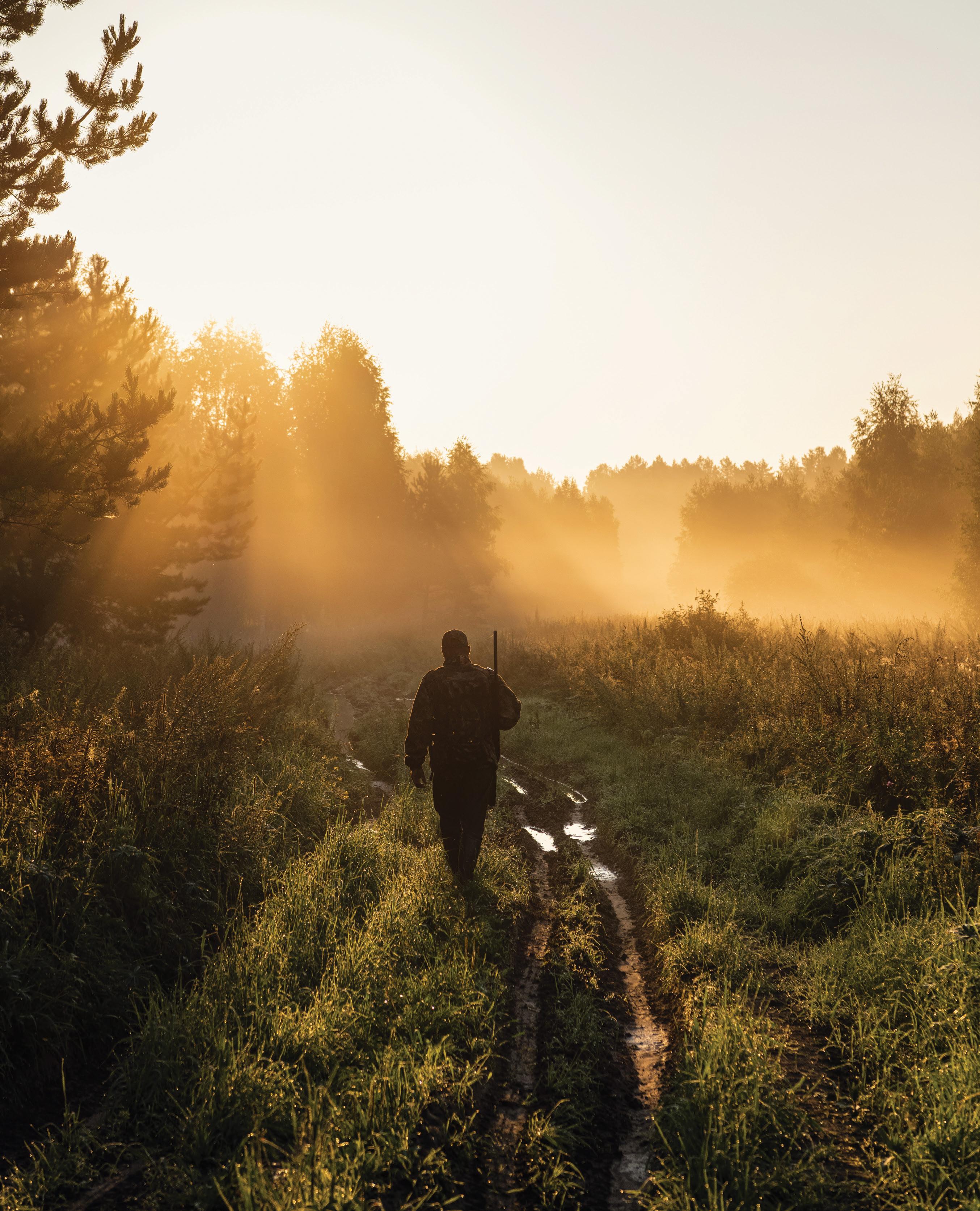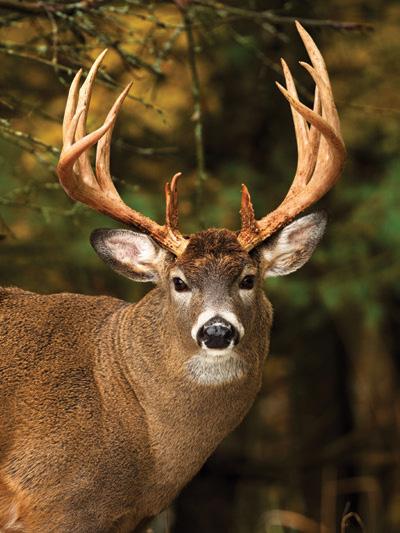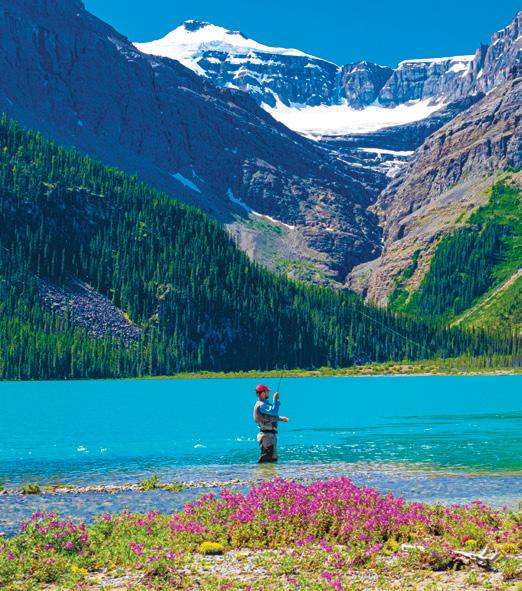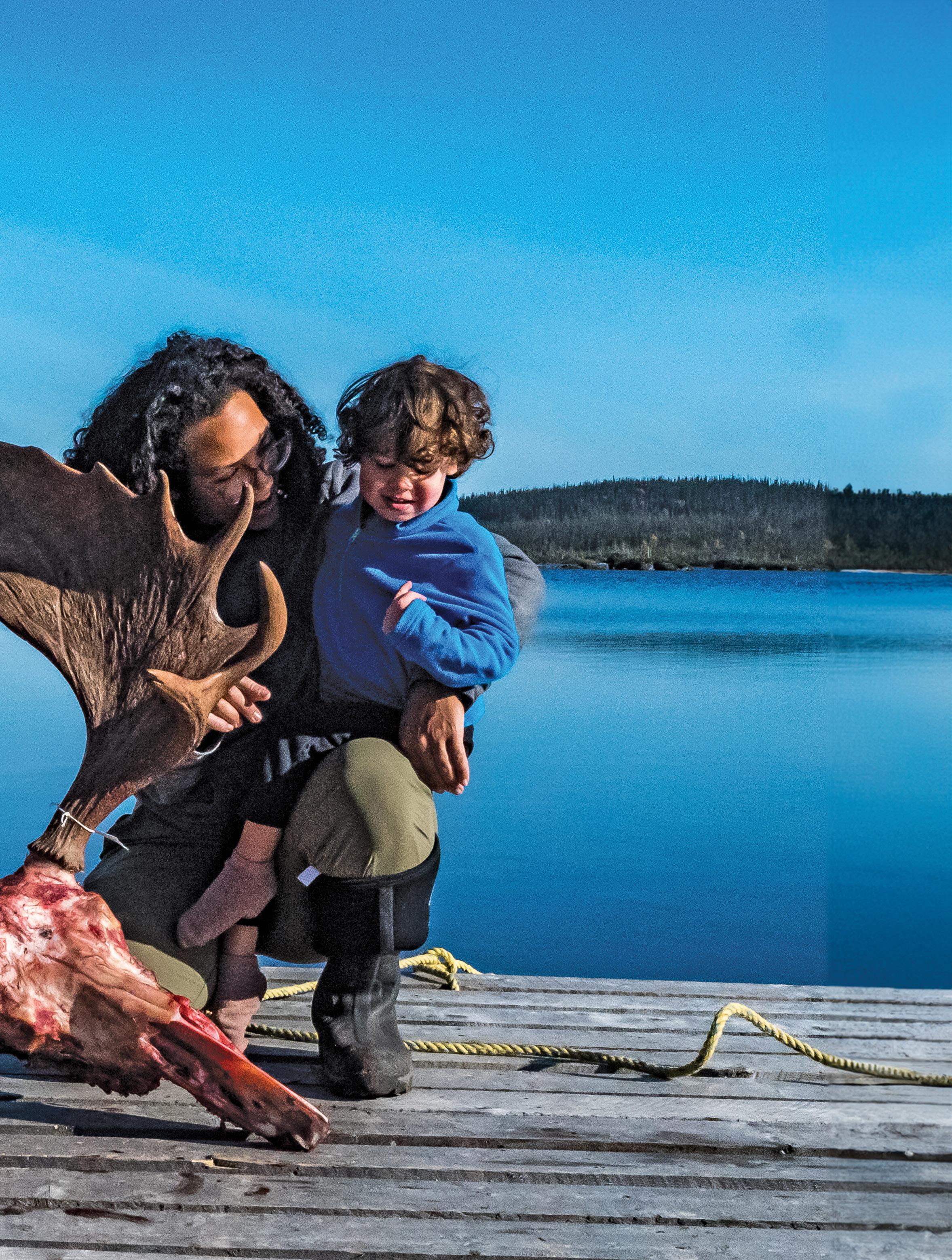
8 minute read
AFIELD
BY JIM BAIRD
Don’t let having young kids
Advertisement
The sun has not yet risen over the mountains to the east as my wife, Tori, and I navigate the icy dock to load our gear, two sons and pet husky into a de Havilland Beaver. It’s mid-October 2022, and we’re heading to a remote cabin in the interior of Newfoundland’s Great Northern Peninsula for a moose hunt. Our adventure didn’t begin here on the float plane dock on the peninsula’s eastern shore, though
“They came through Labrador,” our hunting outfitter, Leonard Payne of Portland Creek Outfitters, tells our bush pilot as he introduces us. And so we had, travelling by road all the way to Newfoundland from our home in Ontario. During our 10-day overland odyssey, we camped out of our off-grid teardrop camper, and now Tori and I were ready to continue with our boys on the next leg.
“It’s rare to see kids of that age come into remote moose camps,” Payne tells me as we board the Beaver, motioning to my sons, fouryear-old Wesley and 14-month-old Hudson. Maybe so, but as the float plane taxis and lifts off the water, I can see the wonderment in the boys’ eyes. I know it’s going to be another great experience for our entire family.
Many believe having children means your outdoor adventures must come to an end, but that certainly doesn’t have to be the case. Take it from me—I’ve gone on all kinds of excursions with my kids, and in all seasons. I won’t sugar-coat it, though, as it’s definitely a lot of work. But the benefits of spending time outdoors with your children are definitely worth it.
Careful planning, outdoor skills and a good mix of bravery and humour are important elements for a successful trip with youngsters. Whether you’re interested in camping with your kids for the first time, or you want to step up your hunting (or fishing) game as a family, the following nine tips can help make your next outdoor adventure a success.
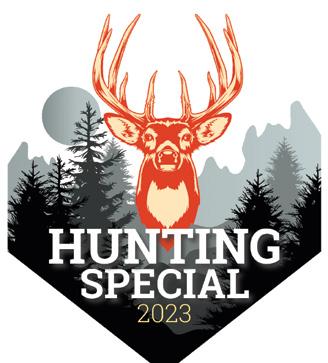
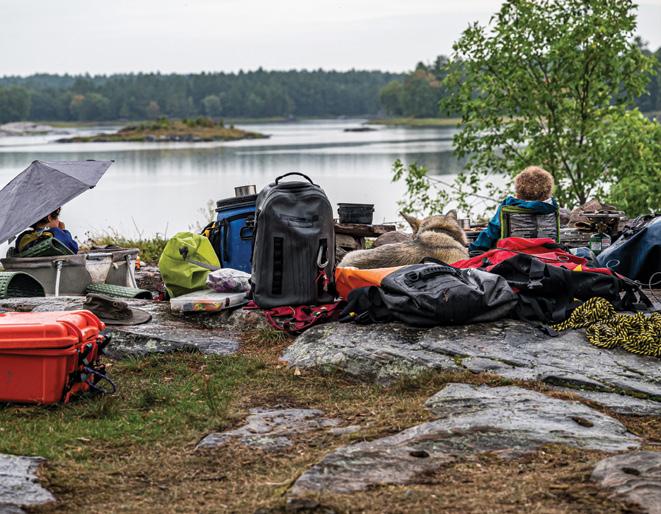
#1 MIND THE ELEMENTS
Particularly during winter, you all need to wear proper clothing, including a merino wool base layer, a fleece mid-layer, a warm parka and snow pants. Good boots, a toque and mittens are also key, and always pack extra handand toe-warmer heat packs. On cold days, my wife and I swap out our kids’ warmers every five hours or so. If you’ll be camping during winter, a canvas tent and portable wood stove is the way to go, along with warm sleeping bags and good ground pads. child floating face up. Of course, teaching your children how to swim as early as possible is also priceless when it comes to water safety.
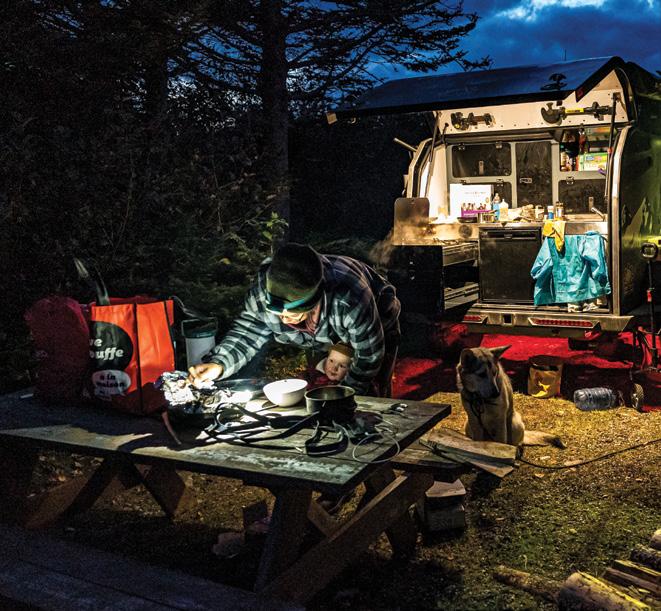
In the summer, meanwhile, fast-drying noncotton clothing, widebrimmed sun hats and good rain gear are the apparel of choice. I recommend dressing kids in longsleeved rash-guard tops to help keep them cool, while also protecting them from the sun. During bug season, bring bug shirts, familyfriendly mosquito repellant and a screened-in bug shelter. No matter the season, the goal is to ensure your kids are always comfortable out there.
When camping, avoid sites with cliffs or jagged rocks in favour of flatter areas set back from the water. Be particularly alert around camp if you’re travelling with toddlers, as they require constant supervision. If you need a few minutes to take care of something, zip your young ones into a tent momentarily with some toys, but overall, plan to always have an adult at their side. And if you’re hunting, practise the same firearms safety around camp as you would at home to keep guns out of little hands.
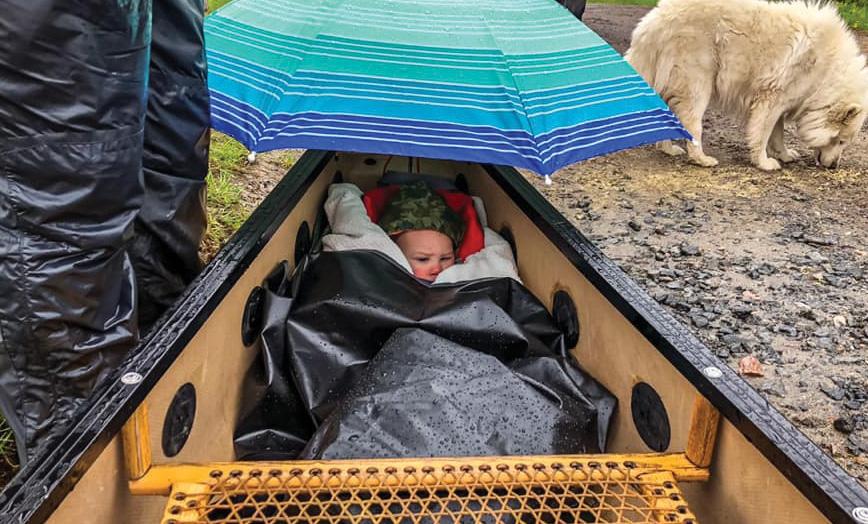
The earlier you set out, the easier the overall trip
#3 SET OUT EARLY

#2 PLAY IT SAFE
If you plan to be on the water at any point during your trip, equip your kids with high-quality, properly fitting life jackets, designed for their weight. Opt for a life jacket with large collar flaps to support the child’s head when in the water; it should also be designed to keep the
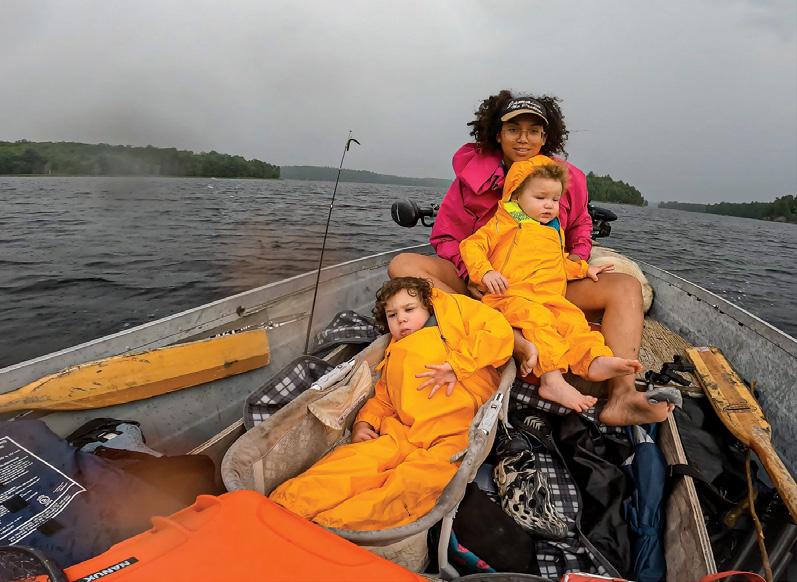
Before setting out, take a basic wilderness first-aid course that includes specific advice for dealing with sick or injured children. Likewise, make sure to modify your first-aid kit to also accommodate kids. For example, include items such as child-strength antihistamine, acetaminophen and ibuprofen. And throw in some bandages with dinosaurs on them while you’re at it.
Finally, if you’re travelling far into the backcountry and won’t have cell service, bring some form of alternative communication device, such as a satellite phone or emergency beacon, to summon help in case of an emergency. And as with any lengthy outdoor sojourn, leave a copy of your itinerary and planned travel route with someone back home.
Everything takes a lot longer when you have kids. This is especially true when you’re preparing to bring them on an outdoor adventure. Plan the day with the goal of getting started early, then get up an hour or two earlier still. Doing this will make things less stressful and safer, because you won’t be rushing. Plus, you’ll get to camp earlier and generally just have more fun. And if others are expecting you, be prepared to impress them when you show up early with the whole family in tow.
#4 MANAGE YOUR EXPECTATIONS
It’s not going to be like it was when you headed out with your significant other or your buddies before you had kids. Instead, you’re going to have to scale back your expectations when it comes to the distance you plan to cover, or the amount of hunting and fishing you expect to do. For example, instead of planning to portage three lakes deep into the back- country in search of trout, plan to portage to just one lake. Or instead of hunting for eight hours a day, plan to stay out for just four. Include the kids as much as you can, and share the supervision and camp duties with your partner. Remember, teamwork makes the dream work.
When you cut back the intensity of your activities from what you’re used to, it can feel a little discouraging at first. While it’s true the adventures aren’t going to be the same, I can assure you they aren’t going to be lame, either. They will just be different, and once you wrap your head around that, you’ll realize it’s still amazing to be out there. And the memories you create will be just as good as, or even better than, before.
You’ll also realize that scaling back your trips doesn’t make them any easier. The challenges may be different when you have kids along, but they’ll still test your problem-solving skills every day. And as with any outdoor adventure, the ability to overcome those challenges will ultimately be fulfilling. Also know that the added concern you’ll have for the well-being of your children will make a scaled-down trip still feel like a large-scale adventure. Remember, a little fear is a good thing, as it leads to more meticulous planning and better decision-making in the field.
#5 THINK OF YOURSELF
With all the preparation needed for a big trip with kids, it can be tempting to just decide to stay home instead. So, why should you head into the wilds with your children? For start- ers, outdoor adventures with family will get you out more. With the amount of outdoor adventure many of us crave, there’s just no way we can do it all without including the family, in part because we simply don’t want to be away from them for too long. And with more outdoor time for you, it will make you more fulfilled in the long run (don’t worry, it’s okay to be a little selfish in this context).
#6 EMBRACE THE DIRT
When camping, most of us loosen up on our personal cleanliness, and the same should apply to kids—it would be impossible for you to have a good time while constantly trying to keep them clean anyway. Bringing some extra baby wipes and hand sanitizer can help, but let’s face it, your kids will most likely have dirt on their hands and faces for prolonged periods of time. Remember, when children are exposed to germs early in life, it helps their body learn to defend itself from pathogens. So, relax and let them get messy—it’s good for them. And there’s a lot that can be learned from simply playing in the dirt.
#7 EXPECT THE UNEXPECTED
When venturing into the backcountry with your family, time should not dictate your itinerary—safety and the weather should. Even if you’re just taking the kids on a day hike, always bring along basic survival gear, including a small flashlight, a lightweight tarp, extra gra-
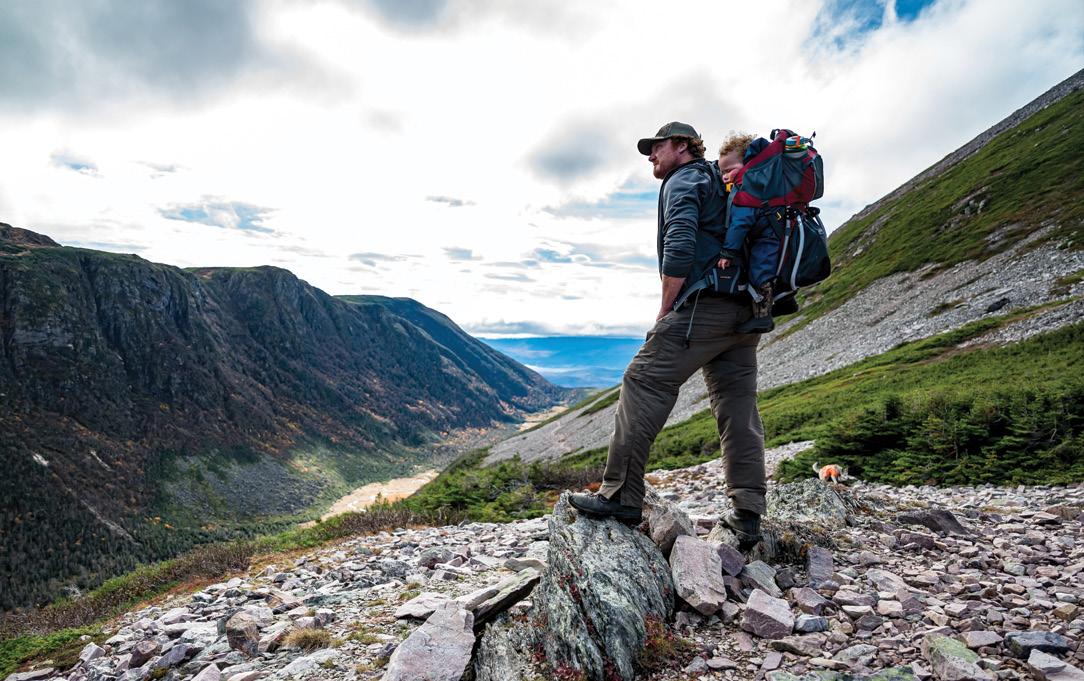
If taking your kids afield gets you out more, that’s a win nola bars and multiple ways to start a fire. You never know when or why you may unexpectedly need to spend the night on the trail. And if you’re prepared, it won’t be the end of the world.
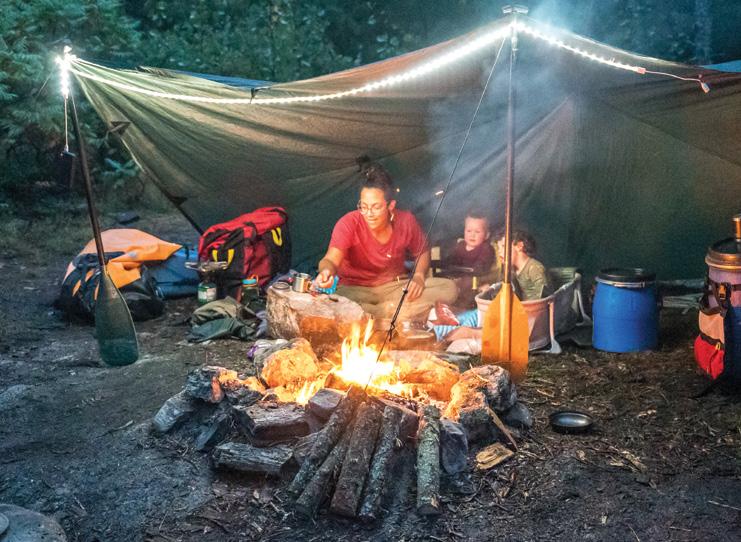
Remember, too, that the long trips, be ready to set up camp almost anywhere if the kids are having a meltdown and it’s getting dark.
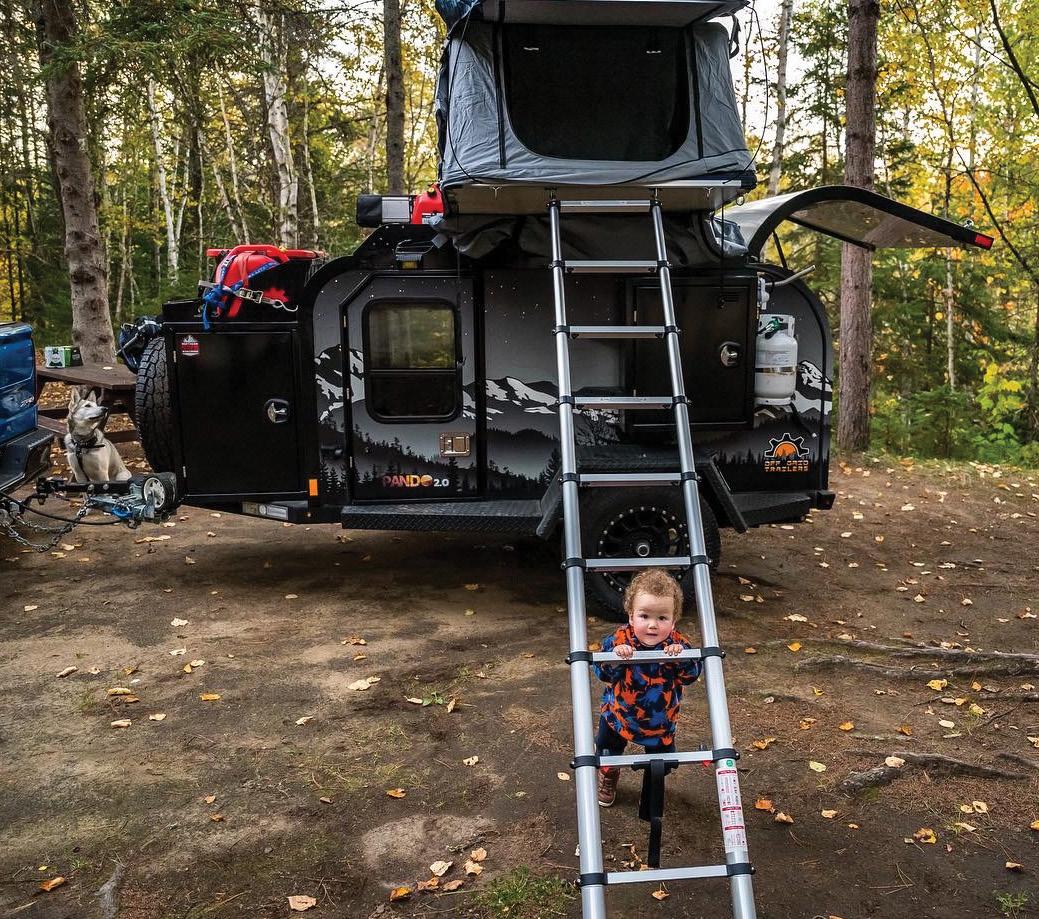
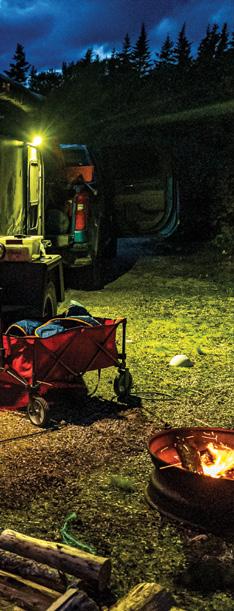
#8 IGNORE THE NEGATIVE
Since I’m active on social media, I regularly upload videos of my family adventures. Unfortunately, my posts often garner discouraging comments from people who think I’m being irresponsible and endangering my children. Safety is always my top priority, however (see tip #2). Indeed, if you use common sense and have solid outdoor skills, your kids are in more danger as passengers in a car and more likely to get sick from going to school than they are when camping.
more experience you have in the backcountry, the safer your family will be. So, before you head out, buck up on the essential survival skills, such as starting a fire and rigging a tarp for shelter. Also, always bring extra food and water in case the trip takes longer than anticipated. And on days-
So many people have been detached from nature in today’s world that most outdoor actives fall well beyond their comfort zone. They’re often well-meaning people who simply didn’t have the privilege of being raised in the outdoors, and they can be frightened by things they don’t understand. If you’re considering taking your kids into the backcountry and have someone in your life who is openly concerned for their safety, it is likely coming from a good place. You can take their thoughts into consideration, but ultimately rely on advice instead from child psychologists, pediatricians, early childhood educators and other parents with experience in the outdoors.

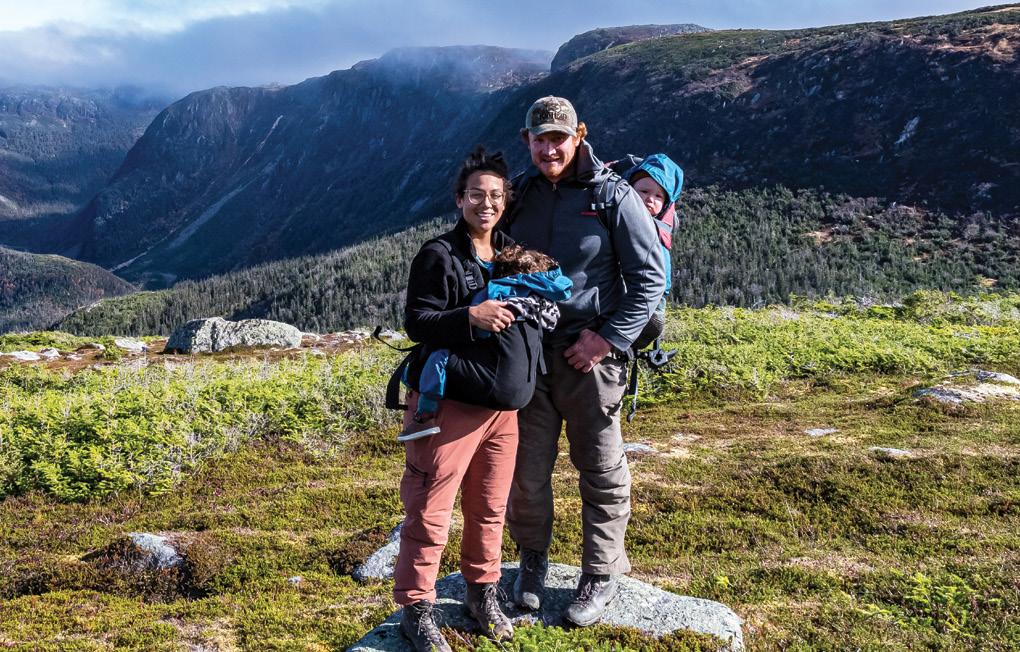
#9 REAP THE BENEFITS
I believe young children who get to experience outdoor adventures develop faster both physically and mentally. They learn practical skills such as paddling, hauling wood and lighting fires, and in turn come to enjoy hard work. At the same time, they learn a lot about nature and develop a love of the outdoors, making their lives all the richer for it.
Due to a rare genetic syndrome, my older son, Wesley, has some considerable developmental challenges that prevent him from walking and talking. His therapists have often reiterated how spending time in nature is good for any child, but that it’s especially beneficial for children with disabilities. My wife and I can see how he loves our adventures, and we’ve seen him improve over time because of the outdoors. He’s become more engaged and aware of his surroundings, and he’s learned to sit up on his own, no doubt due to building up muscles from sitting in the canoe and around camp.
37

My youngest son, on the other hand, learned how to snowshoe at 16 months. By that age, he’d also learned to carry wood and put it on the fire all by himself. And don’t worry—since the age of one, he’s known that fire is hot, and to not get too close. His balance is also impressive for his age because of all the uneven ground he’s been navigating during our outings. The skills and knowledge he’s already acquiring as a small child will ultimately help him become selfreliant, and build his confidence. From my experience, it’s amazing how little it takes to positively influence a child in the outdoors—and that alone makes family adventures into the wild more than worth it. OC
